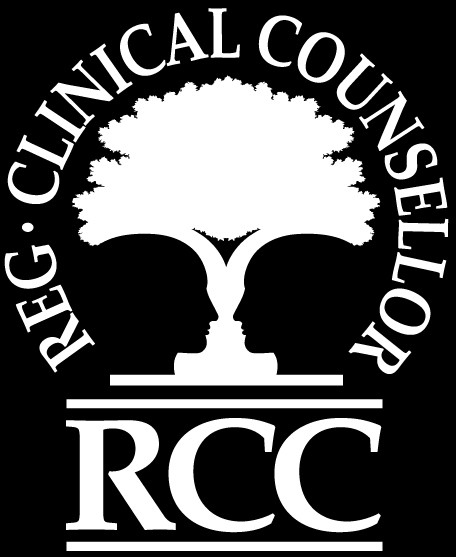
Grief is a journey. Often a bumpy and all out unpleasant one with lots of ups and downs and curves and detours – often a long and uncomfortable roller coaster ride that seems to go on and on and on. As surprising as it may seem, this is great news! It shows that you are human and that you care.
“…to grieve is human”
Grief is a natural response to loss; it is the emotional suffering a person feels when someone/something they love or care deeply about is taken away and no longer with them.[1] The pain and suffering and sorrow and any other emotion you feel is the body’s/mind’s attempt to figure out what it ought to do to about a threat that feels as intense as a dinosaur chomping on your heart but in reality is a significant and painful loss in your life that is difficult for you to cope with. Hiding or isolating yourself, feeling powerless or defeated are painful emotions commonly experienced – you are not alone in this, regardless of how or what/who you lost, your sorrow and devastation are real and not a sign of weakness or anything to feel ashamed about. Remember, to grieve is human.
Though grief is often thought of as a strictly emotional problem, it affects more than that – as you probably have noticed. Biological/physical symptoms are common yet not as widely noticed: fatigue, insomnia, lowered immunity, pain, and weight changes often accompany the sorrow. If your physical symptoms intensify after prolonged grieving, consider seeing a professional as this might be a sign of depression (see “Can grief become depression?” below).
How and how long should I be grieving?
Everyone grieves differently and for a different length of time. Personality factors, faith, coping abilities, the magnitude/intensity of the loss, life experience, and many other factors influence what loss is/what it “looks” like/how long it lasts; as mentioned before, grief is a journey.
It is a myth that a person must cry during times of loss. Sure, a lot of people cry during times of emotional upheaval (like after a loss or at a funeral) but tears are not “evidence” that a person is sad and grieving; different responses exist and are no less real or significant. Maybe one person cries while another is irritable and yells, while yet another is quiet. Each person grieves in their own way.
It is also a myth that there is a single, specified period of time to grieve a loss. As everyone grieves differently, each person is on the grief journey for different lengths of time: maybe one person is “done” grieving one month after a loss, while someone else is still on their journey one year later. Countless factors influence the grief response – especially the intensity or significance of the loss; “how long” it takes to grieve a loss cannot be specified or generalized across people.
What about the “stages” of grief?
In 1969, psychiatrist Elizabeth Kubler Ross identified 5 common “stages of grief”: denial, anger, bargaining, depression, acceptance.[2] While these emotional reactions might be commonly experienced by some individuals, it is not required to go through all of these stages in this particular order to heal from or “get over” grief. In fact, some people do not even go through some “stages” at all or go through the same “stage” numerous times. As most of you know, a whole bunch of emotions, some that might not make sense to you, grab hold of you and often take a distressingly long time to let up. It may not seem like it or seem unfair/ridiculous but this is a normal – even healthy – way of experiencing grief. Although it is undoubtedly tough, give yourself permission to feel the emotions that come up; attempting to ignore the grief or putting on a happy/brave face doesn’t help anyone. In fact, trying to cover up a loss in this way can actually make your experience worse! Let the feelings – whichever feelings – come and go in their own good time. You don’t “need” an excuse to feel what you feel, nor need you feel embarrassed or ashamed for the emotions present on your journey. The body knows what it needs in order to feel “better: – trust the inner wisdom of your body!
Can grief become depression?
Grief and depression share a lot: feelings of sadness, anguish, sorrow, despair and many others come and go during the roller coaster ride of grief. Good days and bad days are experienced when you are grieving – especially when you are triggered by, for example, birthdays, anniversaries, holidays, times when you “should” feel happy. With appropriate and effective coping strategies, there is a very good chance that such feelings will ease up, at least a little.
If feelings of emptiness, hopelessness, and despair are constant and feel overwhelming, it would be a good idea to visit a mental health professional for assessment and assistance with dealing with depression. In particular, if you are experiencing suicidal or self harming thoughts, feeling intense guilt, unable to function in your daily activities (like going to work or school, getting dressed), eating or sleeping too much or too little, losing interest in things that once interested or mattered to you, seeking help is strongly recommended. This is not something to feel ashamed or embarrassed about either – just the opposite: it shows that you are caring for yourself and your well being. Good for you!
How am I supposed to cope or deal with these feelings?
Just like there is no single way to grieve a loss, there is not one, single way to approach coping with a loss. This too is very personal and what helps most is very likely to differ for each people and for different cases of loss/grief. Here are a few ideas:
-
Give your sorrow words
“Give sorrow words; the grief that does not speak whispers the o’er-fraught heart and bids it break.”
– William Shakespeare
When sorrows and losses are just stuffed into the back of the mind and ignored, they can become more intense and end up interrupting your days and your life. Good ol’ Shakespeare was onto something when he encouraged “giving sorrow(s) words”: rather than keeping painful thoughts and feelings in your head and letting them fester, literally “get them off your mind” and onto a piece of paper. Writing out how you think or feel in any way (journal, story, poem, song, random words, whatever you prefer) for as little as 10 minutes a day (or longer if you’d like) can help quite a bit. If you are experiencing a lot of difficulty with shame or embarrassment or shyness, writing what you would like to say/express to another can be a kind of practice or rehearsal – the first step – to opening up. Best part is you can do whatever you’d like with the paper you wrote on: destroy it, crumple it up and throw it away, put it in a notebook or filing cabinet, it is your choice.
If writing isn’t your thing, be creative in another way. Maybe drawing or painting or sculpting – any of these could be a way of expressing your grief or sorrow.
-
Honour the person/pet you lost
Especially in cases where you didn’t get a chance to say goodbye to who or what you lost, taking some time to ask yourself what he/she/it would have wanted you to do in your time of grief and acting on that (as long as it is safe for you). Although the person/pet has been lost in the physical sense, he/she/it is still and will always be in your heart and mind. Would he/she/it want you to stop actively living in response to his departure? Maybe the two of you always wanted to try scuba diving together – you could try that for him, as an act of remembrance or in memorium of him. Or perhaps you could make a donation to his/her favourite charity in his/her name.
-
Rituals
“But I don’t want to “forget” my lost loved one” – who would? You shared a lot of love, care, good times, not-so good times, experiences and bonds with this individual; it makes sense that you might not want to throw it all away. Perhaps you could create a ritual type of remembrance for him/her/it. Whether it is a formal religious or spiritual ceremony or a private moment, it would be for you to remember and respect the person/object. As an idea, maybe you might set aside a period of time each week or month for you to sit in silent remembrance/meditation while playing a favourite song or movie; or maybe reading a cherished poem aloud; or maybe praying for him/her/it. As with anything suggested here, do what feels good/right to you.
-
Self Care
I cannot over-emphasize the importance of caring for yourself – at times of despair and otherwise. Having compassion for yourself (self compassion) is in no way selfish or self indugent; instead, it is recognizing and respecting your suffering and acting in ways to relieve it; to genuinely care for yourself as you would a baby or whimpering puppy. While pain and loss are universal, suffering does not have to compound the intense pain. I realize this might seem “way out there: – it is different from what we practice in our society (for the large part of it). I encourage you to try placing your hand over your heart and comforting yourself. You could be pleasantly surprised at the effect this has.
Meditation (of any kind) is another very highly recommended activity. Learning to be with your experiences and accept them for what they are can have many different benefits.
Eating well and exercising are also tremendously important during tough/challenging times. Consider it as putting enough fuel in the tank so that you can carry on travelling on your journey.
-
Support
Turning to close family members or friends is often a great source of support during times of grief and distress. Perhaps good times/good memories with the deceased could be shared and bring on smiles or laughter. Another option could be to seek out a bereavement/grief support group in which other people who have recently experienced loss get together to talk/share experiences, and benefit from the guidance and support of a counsellor. If a group is not available/cannot be found, you have the option of seeing a counsellor/mental health professional who will listen to your experiences and help you to discover ways of coping and responding that are most suitable and effective for you.
If you are a religious or spiritual person, another idea might be to turn to your faith/beliefs for support; it might be an option to integrate services of a leader from your faith (ie a priest, rabbi, elder, etc) with counselling.
-
I can’t “get over” this…
I get it. It is tough dealing with any loss; the intensity could seem magnified as the significance of the loss increases. It is common in our language/our society to speak of “getting over” losses/misfortunes and reaching a state of “closure”. This is tough stuff! To help yourself heal from a loss, a change in perspective might help: rather than “get over” a loss or challenge or tough time, how about “getting through” it instead. A lot can be learned during you way through a loss: new/different coping strategies, new perspectives, information, etc; this could also be a time to cultivate great creativity – maybe it can inspire the plot for a new book or theme of a song or the motivation/desire to paint or sculpt. Getting through a crisis is likely to be difficult and lead to many tears and frustration – all of which is completely fine! Once you arrive at a rest stop on your journey, take a moment to acknowledge what you have been through and the distance you have come – pat yourself of the back! As you get back on the path you are marking, you can be confident in your ability to deal with unpleasant emotions/situations. Keep on truckin’!
-
Am I There Yet???
Your grief is your own – although everyone experiences/will experience it, no two grief journeys cover the same ground. No timeline can be set for the grieving process; there is no “checklist” of things to do to “get over it”. No one but you is able to determine how the grief process is going for you – only you can feel the feelings running through your mind and body; only you can sense whether a particular strategy helps or makes things worse.. This whole process can be scary, especially if it is the first time you are going through it. It might also be overwhelming and just plain hard. You are not alone in your struggles, that’s for sure. What is also definite is that another person – whether a friend, family member, religious leader, or counsellor both shares at least some of what you are going through on this difficult process/journey and wants to listen to you, cry with you, non-judgmentally support you, be here with you.
Andrea Dasilva is a highly skilled Registered Clinical Counsellor with the Summit Counselling Group. Andrea holds both an undergraduate and graduate degree in psychology from the University of British Columbia; and has additional certificates in Physical and Psychological Disability, EAP/EFAP Counselling, and Theory and Practice of Addictions Counselling. One of her primary areas of specialty includes Pain Management and Disability Issues. You can read more about Andrea on her bio page, and contact her at 604-558-4898 or through our contact form.
Summit Counselling Group is made up of eight, professional, and compassionate Registered Clinical Counsellors; working with individuals, couples, adults, children, adolescents, and families at our executive West Broadway office in beautiful Vancouver, B.C.
[1], 2 Helpguide.org. (2015). Coping with grief and loss.


